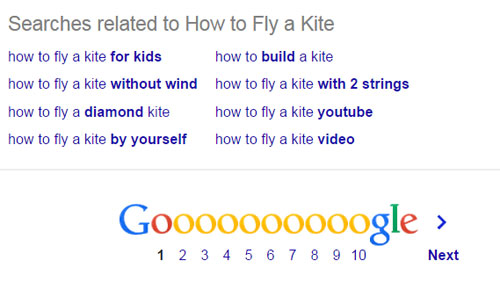Social Media Marketing for Search Relevance

Keywords are an important part of search engine optimization (SEO). With updates to Google’s algorithms, however, keywords simply aren’t enough. When you’re building a website, writing a blog, and performing social media marketing, think user intent and not keyword ranking.
Google continues to be the top search engine in the world, followed at a distance by Yahoo and Bing. Moving from a “search” engine to a “knowledge” engine, Google’s priority is to give its users relevant information from the billions of pieces of information it crawls and indexes. In other words, Google is intuitive and not a “text matching” machine.
The results returned depend on a number of factors, including but not limited to: the user’s query, location, and previous searches; the quality and originality of your website, blogs, and online media marketing efforts; and the relevancy of your content. While some factors are beyond your control (like a user’s location and search habits for example), you do have some optional tactics as part of your internet marketing strategy.
To assist in your SEO endeavors, we outline three strategies you can use immediately:
1. Fuzzy Matching. Fuzzy matching helps the searcher find topics that may not be a 100% match to their query but still contains relevant information. An example is “catering” – the words, “cater” and “catered” are fuzzy matches because they share the same stem word (cater). Therefore, if you’re keyword is “catering,” you can incorporate the fuzzy matching words so “catering” isn’t repeated over and over, giving your content natural flow while maintaining part of the keyword.
2. Association. Association shows relationships between different types of words. Using our example above, words associated with “catering” could be: tablecloths; flowers; wait staff; chef; themes; style; and of course, food, to name a few. Incorporating association words with keywords allows you the opportunity to present content that is original, relevant, and related.
3. Related Search Terms. Appearing at the bottom of a Google search engine’s page, these are terms that other users have searched that are in close proximity to your terms you searched for. For example, let’s say you’re in the kite business and kite is one of your keywords. The phrase, “How to fly a kite,” has the following related search terms:

Image via Google
This gives you information about the type of information users want and ideas to incorporate into your search marketing- website, blogs, and social media postings.
Remember, you have to give searchers the information they want in order for Google to deem your content relevant. While the three strategies are simple, it will take some time to research, create relevant content and find new search terms.
Don’t Let Your Content Become Irrelevant
If time is of the essence, you may need a San Francisco Digital marketing company that understands the importance of search query relevance and includes it in their SEO services. With over 15 years of experience, SEO Pro delivers value and results to its clients with its various digital marketing packages. Contact us today at (510) 276-9902 to discuss how we can help your business.
